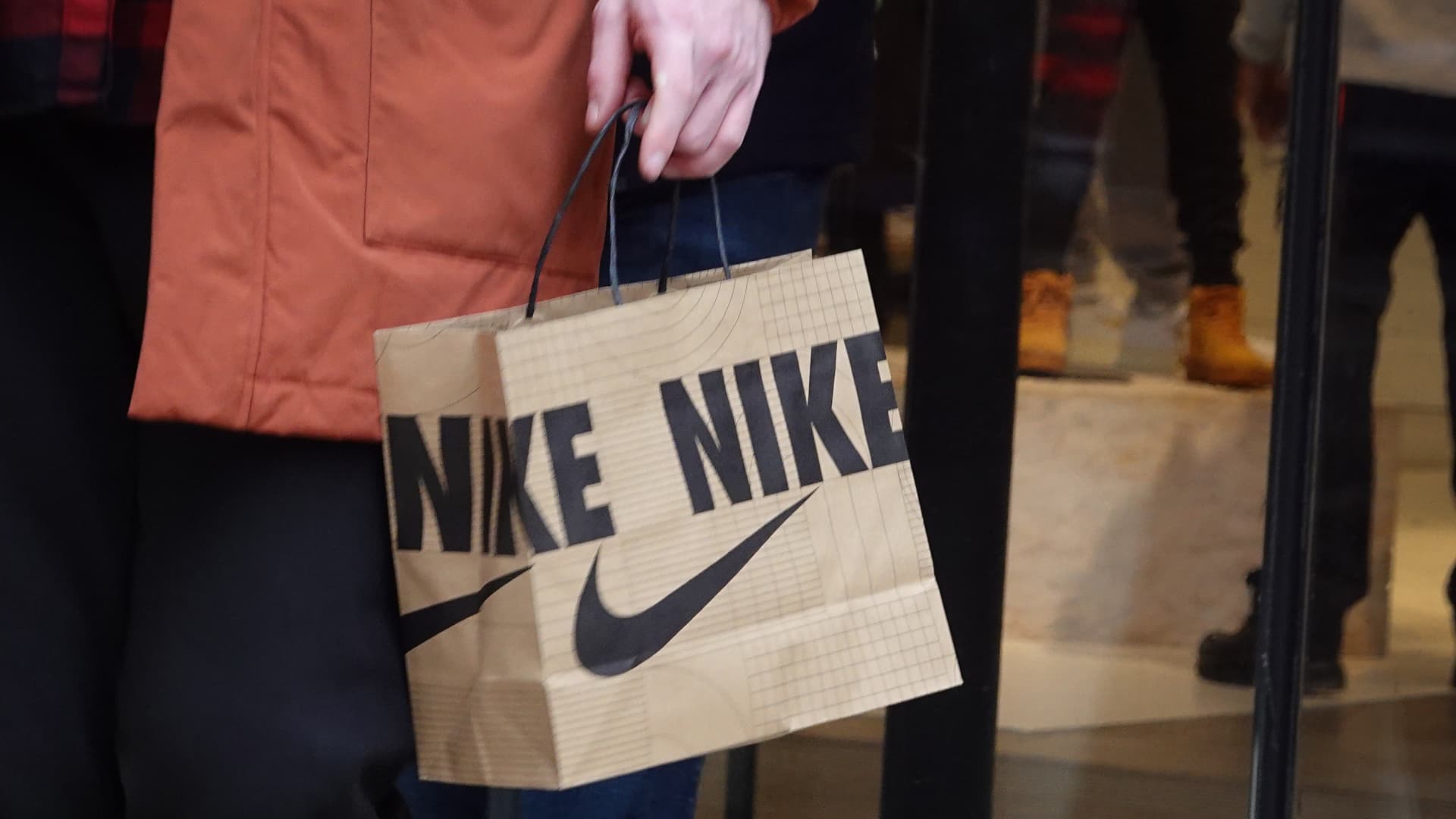
A shopper leaves a Nike store along the Magnificent Mile shopping district with a purchase in Chicago, Dec. 21, 2022.
Scott Olson | Getty Images
Nike reported revenue Thursday that fell short of Wall Street’s revenue expectations for the first time in two years, but it beat on earnings and gross margin estimates.
Here’s how the sneaker giant performed during its fiscal first quarter compared with what Wall Street was anticipating, based on a survey of analysts by LSEG, formerly known as Refinitiv:
- Earnings per share: 94 cents vs. 75 cents expected
- Revenue: $12.94 billion vs. $12.98 billion expected
The company’s reported net income for the three-month period that ended August 31 was $1.45 billion, or 94 cents per share, compared with $1.47 billion, or 93 cents per share, a year earlier.
Sales rose to $12.94 billion, up about 2% from $12.69 billion a year earlier.
Nike shares rose by about 1% in extended trading Thursday.
Investors have been laser focused on Nike’s recovery in China, its relationship with its wholesale partners and how the resumption of student loan payments will impact sales.
They’re also keen to see Nike’s margins recover after bloated inventories, high promotions and supply chain woes contributed to lower profits over the last few quarters.
During the quarter, Nike’s gross margin fell about 1 percentage point to 44.2%, but it was higher than the 43.7% analysts had expected, according to StreetAccount.
Sales in China grew by 5% compared to the year-ago period to $1.74 billion, which fell short of the $1.84 billion analysts had expected, according to StreetAccount.
During the previous quarter ended May 31, Nike saw China sales jump 16% compared to the year-ago period. But the numbers were against easy comparisons because the region was still under Covid-related lockdown orders during the prior year.
While Nike remains bullish on China, the region’s economic recovery has so far been a mixed bag. Following a sluggish July, retail sales picked up during the month of August to rise 4.6% compared to the prior year, beating expectations of a 3% growth forecast by Reuters.
When it comes to its wholesale revenues, Nike’s relationship with those partners have been rocky. As the company has pivoted to a direct-to-consumer model, it has focused on driving sales online and in its stores at the expense of its wholesale accounts.
However, as Nike grappled with excess inventories throughout 2023, it relied on those partners to move through that merchandise. It has now restored its relationship with both Macy’s and DSW – accounts that it previously cut in favor of its DTC strategy.
Some analysts expected Nike’s wholesale revenue to be sluggish during the quarter because excess inventories have been a problem throughout the retail industry – and some wholesalers are being more particular in what they order to avoid another backlog.
Wholesale revenue during the quarter was flat compared to the year-ago period at $7 billion.
Amid decades-high inflation rates, consumers have been pulling back on apparel and footwear. With the resumption of student loan payments looming ahead, some analysts expect those sectors to take an even greater hit.
Jefferies conducted a survey on U.S. consumer spending and found 54% of respondents plan to spend less on apparel and accessories. Meanwhile, 46% plan to spend less on footwear, which doesn’t bode well for Nike.
It may still be too early to gauge the impact of student loan payments on Nike. Its first quarter ended in late August, and payments aren’t set to resume until October.







